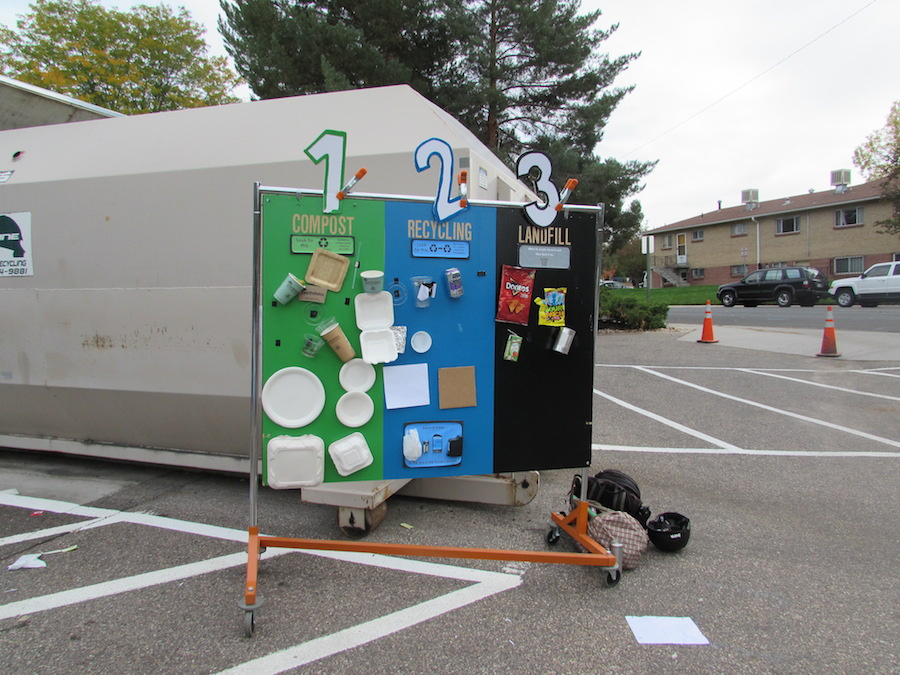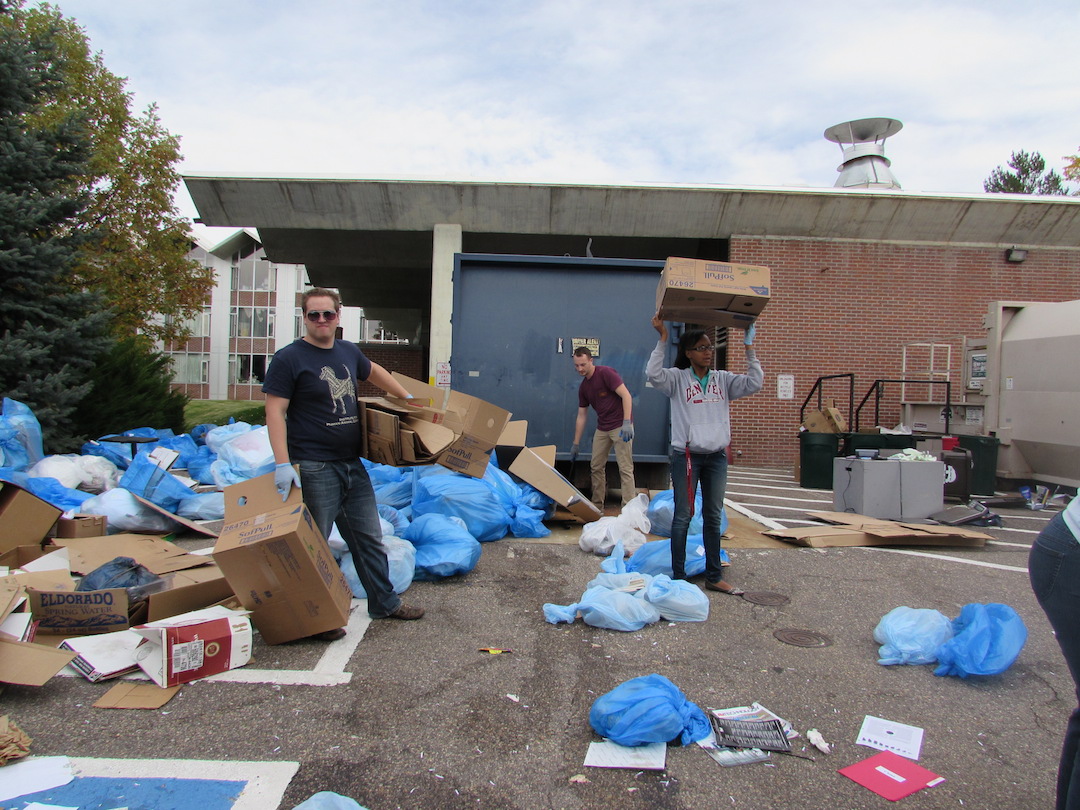Trash is not necessarily something that college students think about on a daily basis.
However, the DU Center for Sustainability—in tandem with other groups, including faculty, classes, the Environmental Sustainability LLC and the DU custodial crew—put on an annual event to raise awareness of how much waste DU creates. This year’s “Mt. Trashmore” event was held on Oct. 15.
“We produce over 1200 tons of waste on campus per year,” said Chad King, University Sustainability Coordinator. “It’s important that we have some visual representation of what that looks like, what we contribute daily to landfills.”
During the event, 760 pounds of waste were sorted and weighed from the specific buildings. The volunteers also sorted 3588 additional pounds of landfill material and 1095 pounds of recycling. In total, they collected 5443 pounds of waste. Last year, Mt. Trashmore volunteers collected around 4400 pounds of waste.

Of the materials collected this year, 76.7 percent were landfill-bound and 23.3 percent were recyclable. This number is very close to DU’s annual diversion rate (the amount of materials composted or recycled rather than sent to the landfill). However, DU’s diversion rate is still not as high as the Center for Sustainability would like it to be.
“We can do better,” said King. “In the end, we want to see our diversion rates increase and our overall waste decrease.”
Unlike last year, this year’s event focused specifically on waste from Craig Hall, the Daniels College of Business, Margery Reed Hall, the Joy Burns Center, the Ricketson Law Building and Anderson Academic Commons.
Waste from the dining halls and the Ritchie Center was not included, and only small amounts from the Anderson Academic Commons were used, due to difficulty in transporting the waste from those buildings. The waste was collected in the J-Mac parking lot, where volunteers sorted and weighed the waste throughout the day.
“This year’s event went very well,” King said, referring to both the amount of volunteers and the amount of waste collected.
The mountain of trash was weighed and sorted by 3 p.m. with the help of 74 volunteers, including members of Professor Megan Kelly’s freshman seminar called Trash and (Zero) Waste in a Disposable World. The FSEM was a new addition to the usual volunteers who help with this event.
“Having volunteers help with sorting waste provides a great understanding of our waste stream, and often provides added motivation to work at improving our practices across campus,” King said.
Besides bringing awareness to the amount of trash DU can accumulate, the Center for Sustainability wants to motivate people to act on what they see to eliminate waste, including recycling and composting more. Many efforts in place on the DU campus to make it more “green”—including composting in the dining halls and zero waste hockey games—go to DU’s goal of being carbon neutral by 2050, a plan that was announced in 2009.
“By doing so we can reduce our greenhouse gas emissions, reduce the amount of space in Colorado we are turning into landfill, reduce the number of trucks that are driving on campus, and increase the amount of jobs in Colorado, while producing more valuable soil through composting,” King said.
Overall, the event was a success that King and the Center for Environmental Sustainability hope will bring about even more awareness and activism to the DU campus.
For more pictures the event, go to the Trash and Zero Waste Instagram page.











